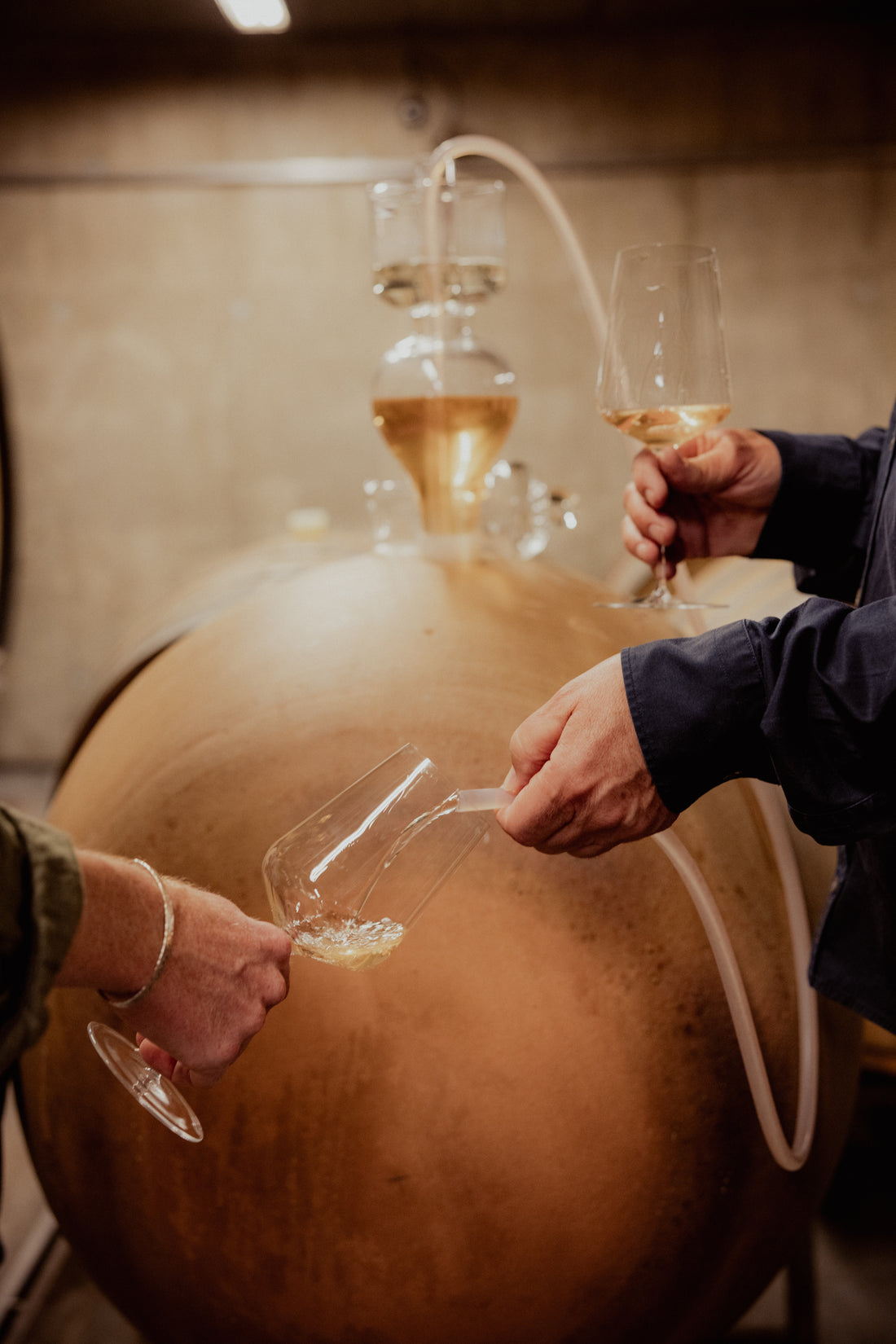There are a couple things that contribute to the particular character of heavy, American chardonnays. But it would be false to say the all chardonnay taste buttery and full-bodied.
We hear a lot of people say they don’t like Chardonnay. The same few words usually come up: buttery, heavy, full-bodied, oaky. For some, Chardonnays also cause particularly unpleasant hangovers.
In our experience, a lot of the Chardonnay sold in the US fits this description.
But not all Chardonnay is created equal. There are more than a dozen different styles from across the world. If you avoid Chardonnay because it’s heavy and hangover-inducing, you may want to explore some of its lighter styles.
The Lighter Side of Chardonnay
Many of the following ingredients and processes are what makes Chardonnay taste buttery:
The first is malolactic fermentation—an aging process that converts malic acid in young wine into softer, creamier lactic acid.
Malic acid contributes a crisp flavor and texture to wine. It’s light on your tongue and is most famous for imparting green apple notes that are present in a lot of brighter white wines.
Lactic acid is creamier and softer (less acidic) than malic acid. It’s the same acid you find in dairy products; “lacto” means milk and, like milk or cream, lactic acid creates a rich mouthfeel that gives a wine more body.
Virtually all red wines undergo malolactic fermentation. The process is much rarer for whites. Usually white wine producers want to keep the crisp fruit-forward notes that malic acid provides.
California chardonnay, however, almost always includes malolactic fermentation. It’s the reason you may describe chardonnay as oily or buttery—the high levels of lactic acid impart a much thicker texture than you get with most white wines.
However, that mostly applies to California chardonnays, as well as one or two specific styles from Italy, France, and South America. Plenty of chardonnays do not undergo malolactic fermentation, especially the majority of those from Europe (with a couple exceptions), Australia, and New Zealand.
These lighter chardonnays are aged in stainless steel, which decreases oxygen exposure and thus reduces malolactic fermentation. The resulting wines are lean, mineral, fresh, citrusy, and crisp—a far cry from the heavy chardonnay you find in the warmer regions of California.
The Less Oak, the Better
Most California chardonnay is aged in new oak, which means the wine barrels are made with new, fresh oak (instead of older more neutral oak).
Producers use new oak for two main reasons. One is oxygen. Wood is porous, so it allows a lot of oxygen into the wine as the wine develops. That increased oxygen exposure often drives malolactic fermentation, which makes chardonnay taste buttery.
Another is flavor. The oak itself changes the wine, imparting notes of smoke, vanilla, toast, and cedar. Contact with oak also releases a lot of tannins into the wine, making the wine heavier and fuller. This is quite common in US chardonnay.
We avoid new oak in the wines we source because we think it represents too much human manipulation. Natural Chardonnay doesn’t actually taste oaky; it tastes crisp and refreshing. So why not enjoy that instead?
Try a Lighter Chardonnay
If you’ve written off chardonnay as a heavy, high-alcohol wine that isn’t pleasant to drink, maybe it’s time to try it again. The chardonnays we source are light, crisp, low in alcohol—perfect for drinking outdoors in the spring, or with fresh seafood or a whole roasted chicken in the summer or fall.
We hope you give chardonnay a second chance. When done well, the lighter styles are an absolute pleasure to drink.
THE DRY FARM WINES PROMISE
Every one of our pure Natural Wines must taste delicious. After all, even if a wine is grown to the highest natural standards, it needs to taste good to enjoy it. Our wines undergo a meticulous tasting protocol by our wine team. We taste for purity, honesty, sense of place, and dynamic spirit. As a result, our Natural Wines are vibrant and elegant.
Not only are Dry Farm Wines naturally delicious, but they are also:
- Sugar Free
- Lower Alcohol
- Lower Sulfites
- Organically Farmed
- Contain No Industrial Additives
It is time to become a wine club member! Join a community of wine enthusiasts at Dry Farm Wines today by checking out our membership box.


